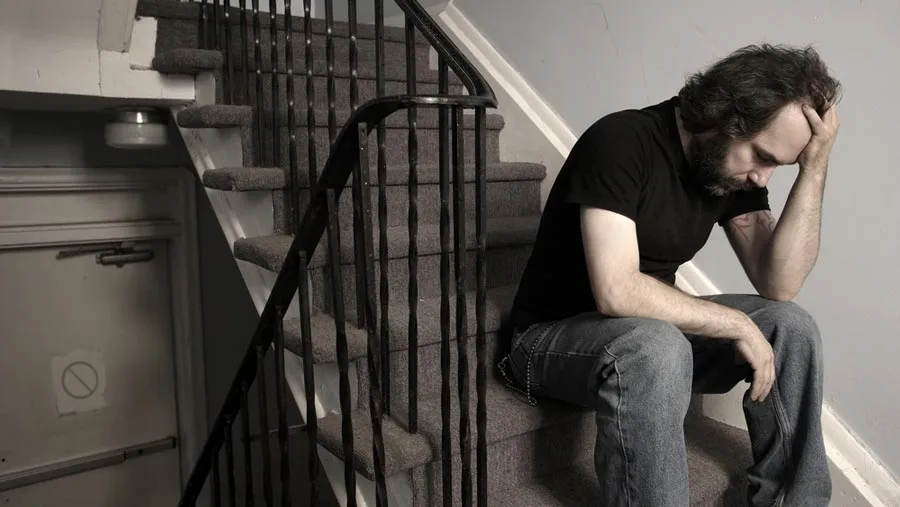Understanding the Differences in Depressive Disorders
Many people experience some depressive symptoms but are still able to function in their day-to-day responsibilities. This does not mean that there is no toll on your mental health, and it could be a sign that you struggle with high-functioning depression.
The core question remains: what is high-functioning depression and should someone consider seeking treatment for it?
Our latest guide will look at the signs and symptoms of depressive disorders, and detail how Catalina Behavioral Health is experienced with a range of mental health issues and can assist at whatever level best suits you or your loved one. We have a team of mental health professionals who can give you personalized care with an array of evidence-based treatments that can improve your mental health.
So keep reading to get insights onto treating and managing high functioning depression, and remember you can reach out to our team at Catalina at any time for additional support!
What Does High-Functioning Depression Mean for Your Mental Health?

Major depressive disorder is a common condition with an estimated 21 million adults in the United States experiencing at least one episode in their lifetime. Clinical depression is commonly diagnosed, but there is one exception: high-functioning depression. This is harder to pinpoint and might even go untreated.
High-functioning depression is different than MDD or persistent depressive disorder. Unlike these other mental health conditions, you may find that you have no issues in your daily life. You may still be able to attend work, engage with your family, such as being a stay-at-home mom, and present to the world as if nothing is wrong.
Even your closest loved ones might not know you have depressive symptoms lurking just beneath the surface.
High-functioning individuals might not want anyone to know about their struggle because they don’t feel it is severe enough to upset their loved ones. They may not even feel that they have a serious mental illness because it does not cause significant impairment.
Consider these symptoms that might accompany someone managing high-functioning depression to self-evaluate your condition.
Get Effective Depression Treatment Options – Reach Out Now!
Depressive Symptoms that Feel Manageable
If you feel like your depressed mood is close to pulling you under, you might be experiencing the early symptoms of major depressive disorder. In high-functioning depression, these symptoms persist even though they may not cause impairment in daily life as they for those whom depression makes it impossible to function normally.
They are frequently less intense and severe than a persistent depressive disorder, which makes many feel that they are not “that bad.” They can include:
- Feelings of hopelessness, sadness, and emptiness
- Increase in anger, irritability, or frustration
- Loss of interest or pleasure in your hobbies or things you once loved
- Sleep disturbances
- Low energy or a feeling of constant fatigue and/or burnout
- Anxiety
- Feelings of worthlessness or guilt
- Difficulty concentrating or making decisions
- Suicidal thoughts or thoughts of self-harm
A mental health professional can help you sort out whether these symptoms are the foundation for high-functioning depression. Even though they might feel manageable right now, it can be beneficial to seek professional help. The worsening of symptoms into major depression can severely impact your quality of life.
Somatic Symptoms from Hiding a Depressed Mood

Have you been struggling to hide your symptoms from your loved ones? Not only does this take a toll on the development of healthy relationships, but it can also segue into somatic or physical complaints. The most common signs that you might be struggling with this condition include headaches, chronic pain, or unexplained stomach pain.
Other forms of somatic symptoms can include:
- Sleep disturbances
- Aches and pains throughout the body
- General fatigue, even with enough sleep
- Changes in appetite
If you experience any of these bodily symptoms in addition to the issues related to a depressed mood, it might be time to consider whether you have high-functioning depression and seek help from a mental health professional.
Co-Occurring Substance Abuse Alongside Depression
Many people associate substance use with major depression, and there is a strong clinical link between any depression diagnosis and a substance use disorder. Many people who are suffering just beneath the surface want to eliminate these feelings of major depression, even if just for a little while.
In turn, this may lead to substance abuse in the form of drug or alcohol use.
Evaluate whether your use of substances has recently increased compared to past usage. If you are using substances as a form of self-medication, high-functioning depression could be the underlying cause. The truth is that substance use will not relieve your symptoms and may compound them over time.
Different Depressive Disorders Compared to High-Functioning Depression

Are you curious how high-functioning depression compares to other types of depression? There are generally two types of depressive disorders that can have a severe impact on your mental health: major depression and persistent depressive disorder.
Here are some of the key differences between these diagnoses and how they are perceived by the outside world.
Major Depression and High-Functioning Depression
Major depressive disorder is often the first thing people think of when a conversation about depression is broached. It severely impacts your quality of life and makes it hard for you to function in relationships, work, and activities of daily living like showering and eating a balanced diet.
It includes all of the same symptoms as high-functioning depression but is more severe in scope and intensity. You must have five or more of these symptoms for at least two weeks. The symptoms should last the majority of the day during most days.
This form of depression often responds to both talk therapy and medication. It does not always resolve on its own and will require professional help to get through the roughest parts of the diagnosis. Don’t suffer alone. Let Catalina Behavioral Health support you with proven depression treatment programs, and help you return to being fully functioning.
Immediate Help for Mental Health Treatment at Catalina
High-Functioning Depression vs Persistent Depressive Disorder
Oftentimes, high-functioning depression is mistaken for another mental illness called persistent depressive disorder (also known as dysthymia). On the surface, these two diagnoses share many of the same symptoms, but the treatment may be different.
Persistent depressive disorder is a clinical diagnosis with mild symptoms of depression and a persistent low mood, lasting for at least two years. With PDD, you will feel a depressed mood more often than not and for the majority of each day. In addition to a constant low mood, you can have other symptoms like changes in appetite or sleep, low self-esteem, or difficulty concentrating.
Persistent depression may eventually lead to an episode of major depressive disorder, though this is not always the case.
On the other hand, as with high-functioning addiction, high-functioning depression is not a clinical diagnosis and has no established set of symptoms. It can take a toll on your emotional well-being, and you may benefit from talk therapy or some form of emotional support. However, it can be very difficult to pinpoint this issue or to seek treatment for it.
How Can a Mental Health Professional Help with High-Functioning Depression?

If high-functioning depression is not an actual diagnosis in the Diagnostic and Statistical Manual (the definitive book used for diagnosing mental illness), how can you treat the symptoms to achieve a better quality of life?
Despite having milder symptoms compared to major depression, you can still benefit from some of the same treatments.
Talk Therapy to Increase Coping Skills
Talk therapy is often a great first option. A skilled mental health professional can help you to learn new coping skills that offset damaging thoughts. Practicing mindfulness is a great way to increase mental well-being and can be a core component of dialectical behavior therapy.
Studies indicate that regular mindfulness practices decrease depression and anxiety symptoms. These can also function as relaxation techniques if you have comorbid anxiety, which can be a part of the signs of high-functioning depression.
Regardless of your diagnosis, you should consider seeking help if you have a constant low mood that may contribute to thoughts of suicide or self-harm. A licensed counselor or therapist can offer you a supportive environment to explore those feelings and find relief from pervasive symptoms.
If you are having current thoughts of suicide, with or without planning involved, please reach out immediately to *988 for assistance on an urgent basis.
Medication Options for PDD
If you are diagnosed with persistent depressive disorder instead, a psychiatrist may work with you to find medication that can help balance your moods. Three major categories of medication can prove helpful in the treatment of this condition:
- Selective serotonin reuptake inhibitors (SSRIs)
- Tricyclic antidepressants
- Serotonin and norepinephrine reuptake inhibitors (SNRIs)
Keep in mind that these medications will not immediately quell negative thoughts and depression. They can take several weeks to build up in your system to have the desired effect. Be patient with the process if this is recommended to you by your doctor.
Lifestyle Changes for High-Functioning Depression
Last but not least, you may decide to take on lifestyle changes if you struggle with any kind of depressive symptoms. If you have a decreased appetite, you could start to think about eating a more balanced diet. A healthier diet free of junk food and inflammatory foods can improve depression symptoms.
You can also start to incorporate more exercise into your daily lives. Physical activity often decreases in those diagnosed with any kind of depression. Increasing your exercise can lead to a decrease in both severity of symptoms and overall mortality.
We Accept Most Major Insurance Providers – Call Now!
Is High-Functioning Depression Covered by Insurance?
High-functioning depression is not something that can be clinically diagnosed. Until the DSM is revised to include this subset of depression, insurance is not likely to cover your treatment. On the other hand, other forms of depression will typically be covered by insurance.
For example, both persistent depressive disorder and major depression are covered by insurance at both an inpatient and outpatient level. This allows you some flexibility to decide what level of treatment will work best for you so that you can pursue a personalized treatment plan.
Catalina Behavioral Health offers both levels of treatment so that you can learn how to interrupt automatic negative thought patterns, gain peer support via our support groups, and learn lifestyle changes that can improve a person’s ability to bounce back from depressive symptoms.
Get Help for Your Depression Today at Catalina Behavioral Health

Are you ready to seek help for depression of any kind? Even if you feel that your symptoms are not that bad, you may experience some disruption to your daily functioning and quality of life. Regardless of whether you seek inpatient or outpatient, we are here to help at Catalina Behavioral Health.
We provide evidence-based treatments that will help you get back to living a life you love.
Don’t let another day pass without seeking help for depression. Reach out to our warm and welcoming admissions staff today to verify your insurance benefits with a quick and confidential phone call. We’re ready and waiting to help you!
References
- U.S. Department of Health and Human Services. (n.d.). Major depression. National Institute of Mental Health.
- Kapfhammer H. P. (2006). Somatic symptoms in depression. Dialogues in clinical neuroscience, 8(2), 227–239.
- Westphal, M., Wall, M., Corbeil, T., Keller, D. I., Brodmann-Maeder, M., Ehlert, U., Exadaktylos, A., Bingisser, R., & Kleim, B. (2021). Mindfulness predicts less depression, anxiety, and social impairment in emergency care personnel: A longitudinal study. PloS one, 16(12), e0260208.
- Selvaraj, R., Selvamani, T. Y., Zahra, A., Malla, J., Dhanoa, R. K., Venugopal, S., Shoukrie, S. I., Hamouda, R. K., & Hamid, P. (2022). Association Between Dietary Habits and Depression: A Systematic Review. Cureus, 14(12), e32359.
- Belvederi Murri, M., Ekkekakis, P., Magagnoli, M., Zampogna, D., Cattedra, S., Capobianco, L., Serafini, G., Calcagno, P., Zanetidou, S., & Amore, M. (2019). Physical Exercise in Major Depression: Reducing the Mortality Gap While Improving Clinical Outcomes. Frontiers in psychiatry, 9, 762.







